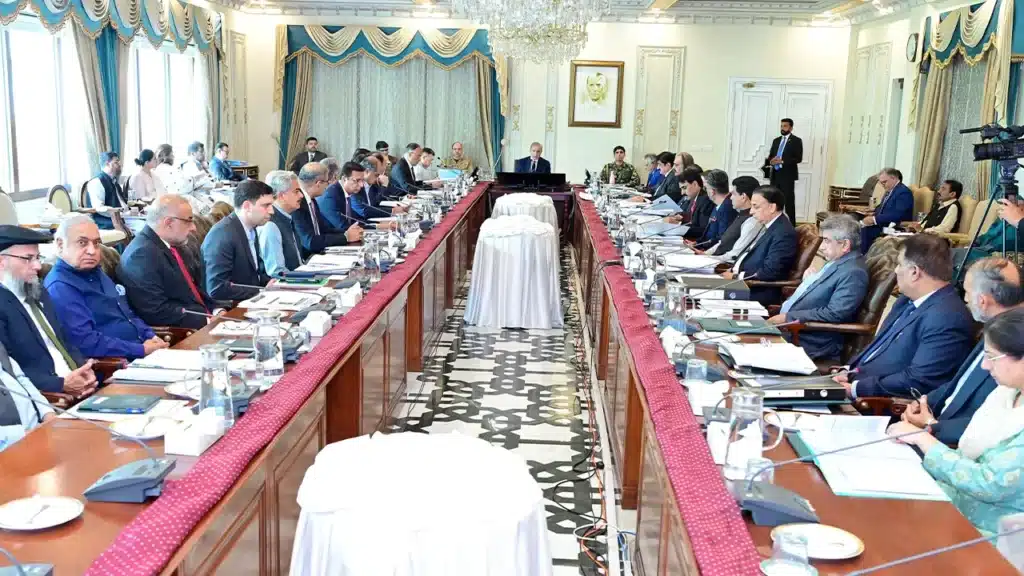Pakistan’s National Economic Council approved a Rs4.224 trillion development budget for fiscal year 2025–26, aiming to accelerate growth and invest in critical sectors like health, education and infrastructure.
The budget plan, cleared during a meeting chaired by Prime Minister Shehbaz Sharif in Islamabad, includes Rs1 trillion for federal projects and Rs2.87 trillion allocated to the provinces, according to state-run Radio Pakistan. All four provincial chief ministers attended the session.
The council also approved a GDP growth target of 4.2 per cent for the next fiscal year, up from an estimated 2.7 per cent for the current year ending June. The macroeconomic framework for FY26 was endorsed, with instructions to federal ministries and provincial governments to coordinate with the Planning Ministry in executing development goals.
Key focus areas for next year’s public sector development programme include healthcare, education, water, housing and infrastructure. The NEC also signed off on the 13th five-year development plan and a new initiative titled Uraan Pakistan Framework.
A third-party evaluation report on the ongoing National Development Programme was reviewed. The council agreed that future planning should incorporate the findings of the review to improve project outcomes.
For the outgoing fiscal year, development spending reached Rs3.483 trillion and Rs1.1 trillion by the federal government and Rs2.383 trillion by provinces.
The NEC was also briefed on macroeconomic trends, including a 30.9 per cent year-on-year increase in remittances from July 2024 to April 2025. The current account turned positive during the period while the fiscal deficit narrowed to 2.6 per cent of GDP. The primary surplus rose to 3 per cent.
The State Bank’s policy rate has come down to 11 per cent, and lending to the private sector rose to Rs681 billion from July 2024 to May 2025, reflecting improved credit conditions.
The meeting followed successful negotiations with the International Monetary Fund on Pakistan’s upcoming budget, as confirmed separately by the prime minister.





